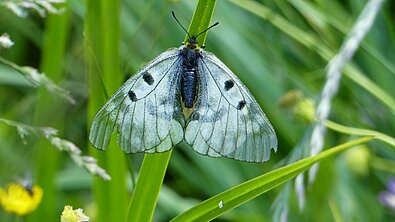Implementation of River Basin Management Plans of Latvia towards good surface water status (LIFE GoodWater IP )
![[Translate to English:] Zaņas upe. Agnijas Skujas foto.](/fileadmin/_processed_/3/b/csm_Zanas_upe_6866ee4b6c.jpg)
![[Translate to English:] Paraugu ievākšana Saukas ezerā. Agnijas Skujas Foto](/fileadmin/_processed_/c/b/csm_Paraugu_ievaksana_Saukas_ezera_1017f88022.jpg)
LIFE GoodWater IP - Implementation of River Basin Management Plans of Latvia towards good surface water status
LIFE18 IPE/LV/000014
The enhanced delivery of all four River Basin Management Plans (RBMPs) in Latvia is necessary to achieve the EU environmental objectives of the Water Framework Directive (2000/60/EC), which requires achievement of good ecological and chemical status or good ecological potential of all surface waters, and achievement of good quantitative and chemical status of groundwater. The European Commission has thrice evaluated Latvian RBMPs: in 2012, 2015 and 2018. A comparison of these assessments leads to the conclusion that Latvian river basin management efforts could be improved, and that more precise or detailed assessments and evaluations could better implement the measures laid down therein.
COORDINATOR Latvian Environment, Geology and Meteorology Center
LIFE FOR SPECIES "Threatened species in Latvia: improved knowledge, capacity, data and awareness"


Since November 2020 Institute of Biology of University of Latvia together with project partners Nature Conservation agency; Daugavpils University; Latvian Ornithological society implementing LIFE project "Threatened species in Latvia: improved knowledge, capacity, data and awareness (LIFE FOR SPECIES, Nr. LIFE19GIELV000857).
The aims of the LIFE FOR SPECIES project are to update the list of protected and endangered species based on scientific criteria, to prepare proposals for changes in legislation, to improve data quality and availability of species, as well as to increase public and stakeholder awareness, and active species protection in Latvia.
Significance
The current regulations, which determine specially protected species and micro-reserve species, were issued 10 to 20 years ago. During this time, scientific information on the occurrence of species and threatening factors has been gathered, as well as changes have taken place in Latvian economy. In order to balance the interests of nature protection and economic activity, it is necessary to develop scientifically substantiated criteria for the definition of endangered species and to prepare legislative amendments that ensure the protection of species.
The main objectives:
- to evaluate and update the lists of specially protected and micro-reserve species, and to prepare updated drafts for legislative amendments;
- to assess endangered species according to criteria defined by International Union for Conservation of Nature (IUCN) and the latest available data;
- to prepare detailed information or species data sheets on endangered species, including data on the occurrence of the species, biology, ecology and the necessary measures for their protection (new Red Book);
- to develop criteria and flexible system for the inclusion or exclusion of endangered species from the lists of specially protected species or micro-reserve species;
- to develop proposals for the improvement of the regulatory framework for specially protected species and species of restricted use (obtaining permits, use, criteria for determining restricted access data);
- to improve the nature data management system OZOLS, as well as to improve species monitoring methods and data forms;
- to increase the competence of public administration institutions, as well as species and habitat experts in work with specially protected species and species of restricted use;
- to increase knowledge and understanding of general public, including landowners, managers, etc. of habitat management and protection of specially protected species, as well as to increase their involvement in species conservation measures.
Read more about the project here.

 CONFERENCE
CONFERENCE